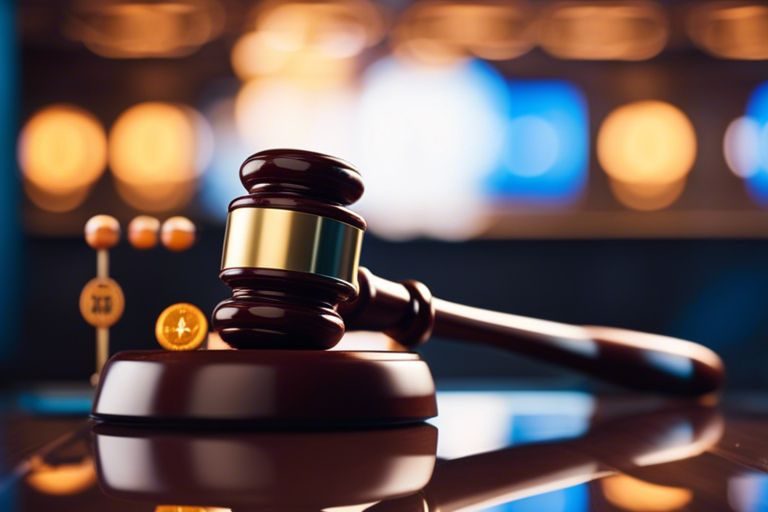Legal Challenges Faced by Cryptocurrency Casinos

Overcoming legal obstacles is a significant concern for cryptocurrency #casinos navigating the complex #regulatory landscape. From #licensing requirements to #anti-money laundering measures, these establishments must grapple with unique challenges to ensure compliance and legitimacy. Understanding the legal intricacies surrounding cryptocurrency #gambling is crucial for both operators and players in this evolving industry.
Overview of Cryptocurrency Casinos
Understanding Cryptocurrency Casinos
To understand cryptocurrency casinos, one must first grasp the concept of cryptocurrencies. Unlike traditional currencies, cryptocurrencies like Bitcoin, Ethereum, and others are decentralized and operate independently of a central authority. Cryptocurrency casinos utilize these digital currencies for transactions, offering users anonymity, security, and fast payment processing.
Legal Framework Governing Cryptocurrencies and Online Gambling
Governing the intersection of cryptocurrencies and online gambling is a complex legal landscape that varies by jurisdiction. While some countries have embraced cryptocurrencies and online gambling, others have imposed strict regulations or outright bans. It is necessary for cryptocurrency casinos to adhere to the legal frameworks of the regions they operate in to avoid legal challenges.
This means that cryptocurrency casinos must conduct thorough research on the legal requirements of each jurisdiction they cater to, ensuring compliance with anti-money laundering (AML) and know your customer (KYC) regulations. Failure to do so could result in legal consequences, including fines, license revocation, or even criminal charges.
Jurisdictional Challenges
Varied Legislation Across Countries
With cryptocurrency casinos operating globally, they are subject to varied regulations and legislation across different countries. The legal status and acceptance of cryptocurrencies can differ significantly from one jurisdiction to another. This inconsistency in regulatory frameworks creates challenges for cryptocurrency casinos to navigate the complex legal landscape.
Compliance with Local and International Laws
Local and international laws pertaining to online gambling, money laundering, and financial regulations pose significant challenges for cryptocurrency casinos. Ensuring compliance with these laws is crucial to avoid legal issues and potential enforcement actions. Striking a balance between following local regulations and adhering to international standards can be a complex task for cryptocurrency casinos.
Understanding the legal requirements in each jurisdiction where they operate is vital for cryptocurrency casinos. It is imperative for these platforms to stay abreast of the evolving regulatory environment and proactively implement compliance measures to mitigate legal risks. Engaging legal counsel with expertise in cryptocurrency and gambling laws can help navigate these jurisdictional challenges effectively.
Specific Legal Issues
Anti-Money Laundering (AML) Requirements
On the forefront of legal challenges for cryptocurrency casinos are Anti-Money Laundering (AML) requirements. These regulations are in place to prevent criminals from using casinos to legitimize funds acquired through illegal activities.
Player Verification and Data Protection
With the rise of cybercrime, player verification and data protection have become critical issues for cryptocurrency casinos. Ensuring that players are of legal age and protecting their personal information from hacks and breaches are key responsibilities for these platforms.
Another important aspect of player verification is the need to comply with Know Your Customer (KYC) regulations, which mandate that casinos verify the identity of their players. This process adds an extra layer of security, preventing fraud and unauthorized access.
Strategies for Navigating Legal Hurdles
Implementing Robust KYC Procedures
To ensure compliance with regulations, cryptocurrency casinos must implement robust Know Your Customer (KYC) procedures. By verifying the identity of their customers and conducting due diligence checks, casinos can prevent money laundering, fraud, and other illicit activities.
Engaging with Regulatory Developments
One strategy for navigating legal hurdles is staying informed about the constantly evolving regulatory landscape. By actively engaging with regulatory developments and seeking legal advice, cryptocurrency casinos can adapt their operations to comply with changing laws and regulations.
Another important aspect of engaging with regulatory developments is participating in industry discussions and lobbying efforts. By advocating for clear and reasonable regulations, cryptocurrency casinos can help shape the legal framework within which they operate.
Summing up
Now, it is evident that cryptocurrency casinos face numerous legal challenges due to the evolving regulatory landscape. From issues related to money laundering and compliance to restrictions imposed by different jurisdictions, these platforms must navigate a complex legal environment. By staying informed about the latest regulations and working closely with legal advisors, cryptocurrency casinos can better address these challenges and ensure their long-term sustainability in the industry.
FAQs
What are cryptocurrency casinos?
Cryptocurrency casinos use digital currencies like Bitcoin for transactions, offering users anonymity and fast payments.
Why do cryptocurrency casinos face legal challenges?
They operate in a complex legal landscape with varying regulations on gambling and cryptocurrencies globally.
What legal issues do cryptocurrency casinos encounter?
Challenges include compliance with anti-money laundering laws, KYC regulations, and differing national gambling laws.
How can cryptocurrency casinos navigate legal hurdles?
By implementing robust KYC procedures, staying updated on regulations, and engaging with legal experts.
Why is compliance with AML and KYC regulations crucial?
Ensuring compliance helps prevent money laundering and protects against legal consequences.
Recommended Posts

Inside the Realm of iGaming
July 5, 2024

Crypto Casinos: Bitcoin Impact on Online Gambling
July 5, 2024

Bragg Gaming Group Innovation at iGB Live 2024
July 5, 2024



